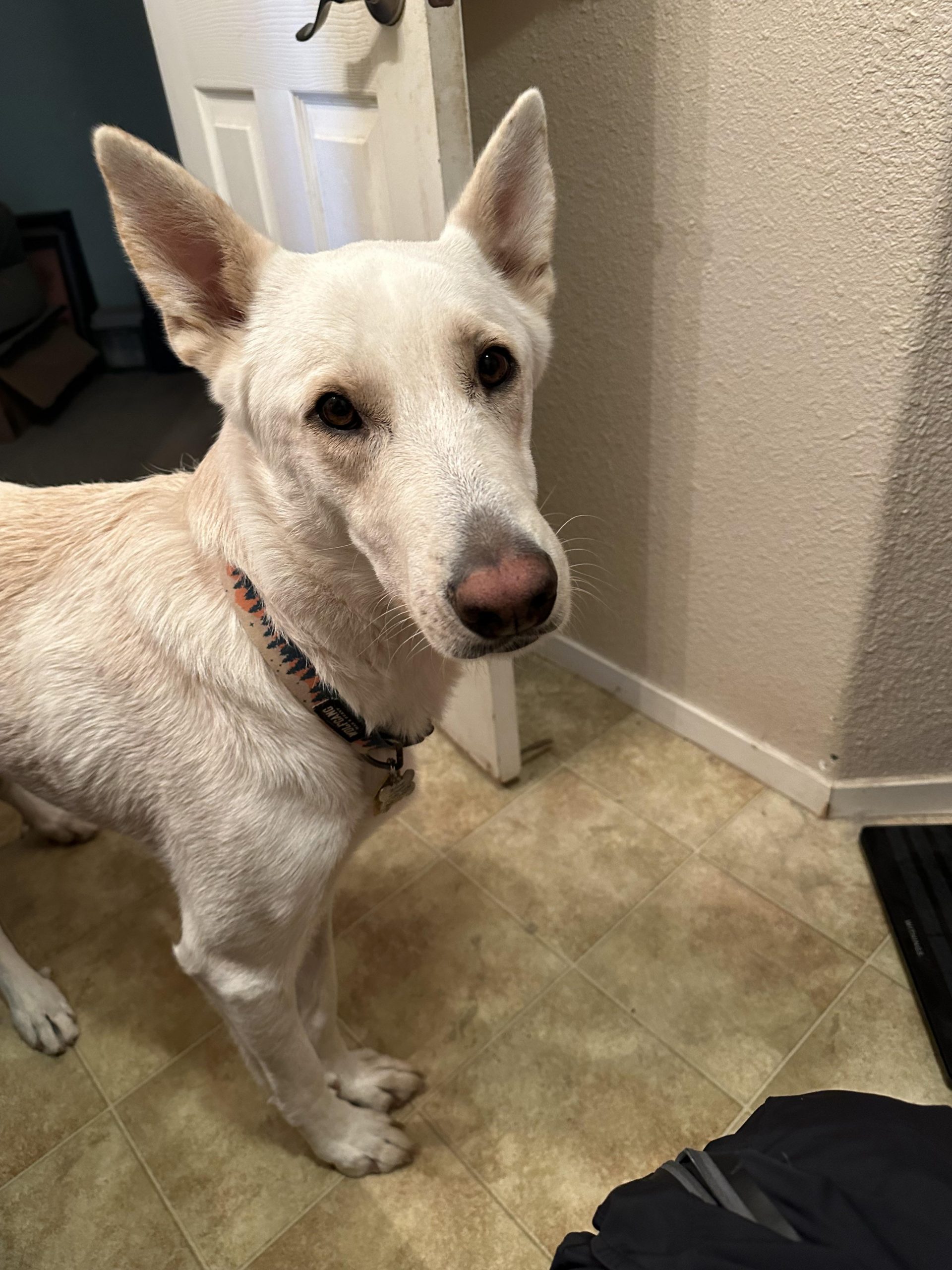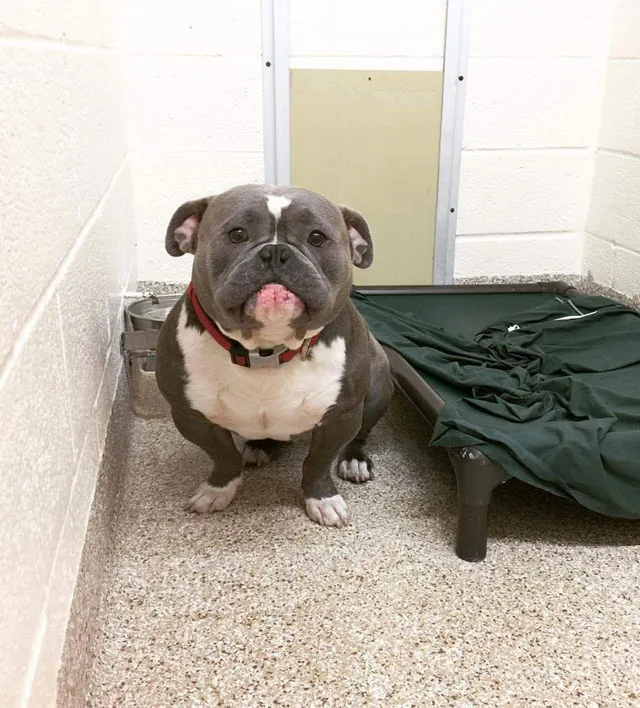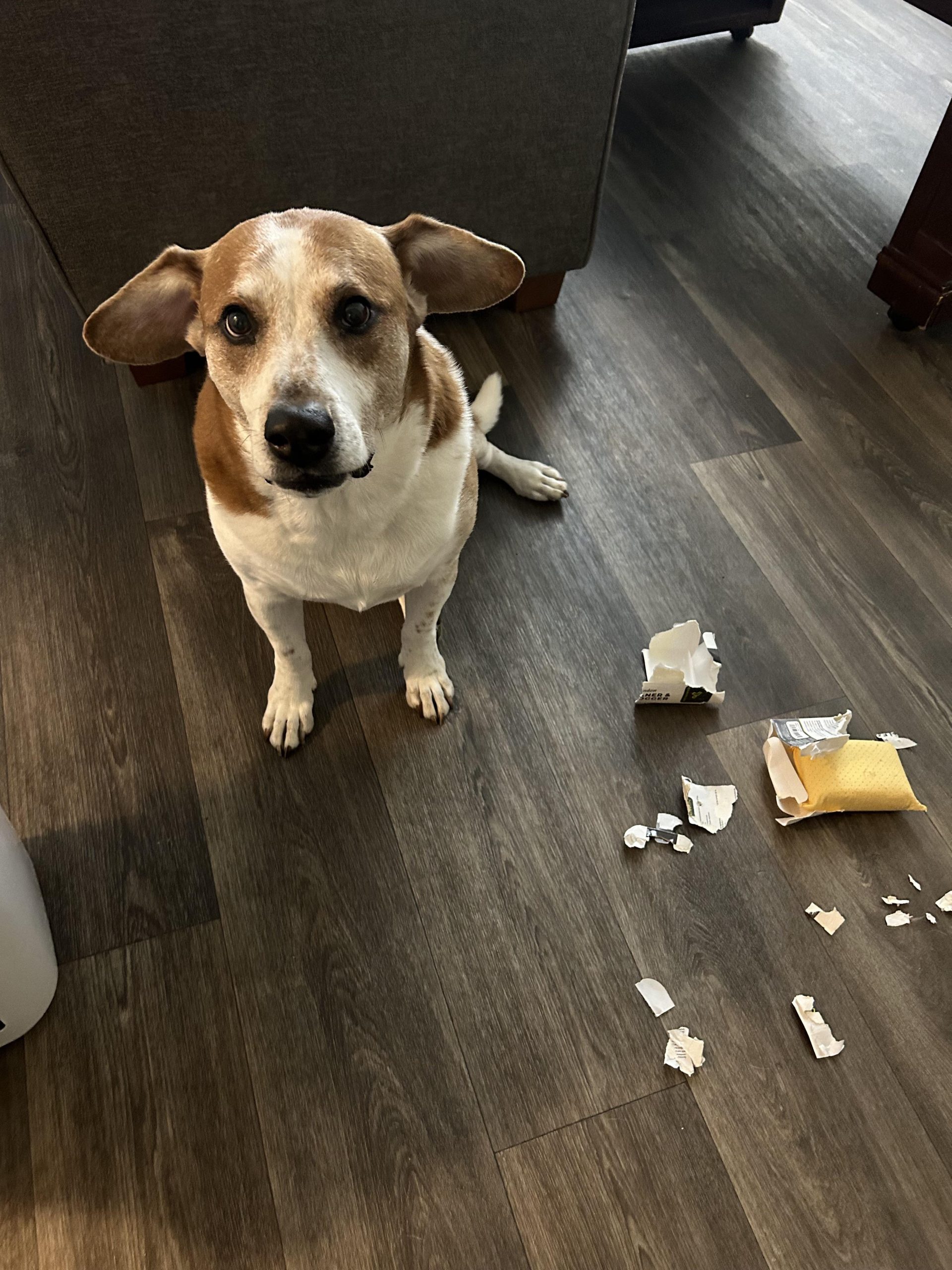
Signs Your Dog Has Been Poisioned
1. Vomiting
Image Source: Reddit
Persistent and unexplained vomiting is a concerning sign that your dog may have ingested a poisonous substance. If your canine companion is repeatedly regurgitating, especially if the vomit contains unusual colors or substances, it may indicate exposure to harmful toxins.Advertisement
2. Diarrhea
Image Source: Reddit
The sudden onset of diarrhea, particularly if it is severe, bloody, or accompanied by other symptoms, can be indicative of poisoning in dogs. Changes in bowel habits, especially when accompanied by lethargy or vomiting, should not be dismissed lightly. Diarrhea is not only uncomfortable for your pet but can also lead to dehydration, making it essential to promptly consult a veterinarian to determine the cause and administer appropriate care.Advertisement
3. Lethargy
Image Source: Reddit
A notable and unexplained decrease in energy levels or overall lethargy can be a significant indicator of poisoning in dogs. If your normally active and lively companion is suddenly subdued, reluctant to engage in usual activities, and seems generally unresponsive, it's imperative to consider potential toxic exposure.Advertisement
4. Loss Of Appetite
Image Source: Reddit
Loss of appetite is a concerning sign that your dog may have been exposed to toxic substances. If your usually enthusiastic eater shows a sudden aversion to food or treats, it could be a red flag for poisoning. The lack of interest in meals may be accompanied by other symptoms, emphasizing the need for a comprehensive veterinary examination to diagnose the cause and devise an appropriate treatment plan.Advertisement
5. Breathlessness
Image Source: Reddit
Difficulty breathing or respiratory distress is a serious consequence of poisoning in dogs. Labored breathing, wheezing, coughing, or other respiratory abnormalities demand immediate attention. Poisoning can impact the respiratory system, compromising your dog's ability to breathe effectively.Advertisement
6. Heart Rate
Image Source: Reddit
Noticeable changes in your dog's heart rate, whether it's a rapid or unusually slow pulse, may indicate poisoning. Monitoring your pet's heart rate can offer valuable insights into their overall health. If you observe irregularities in heart rate, especially in conjunction with other symptoms, it is imperative to consult with a veterinarian promptly to determine the cause and implement appropriate interventions.Advertisement
7. Excessive Drooling
Image Source: Reddit
Excessive drooling, beyond the usual levels seen during anticipation or excitement, can be a sign of poisoning in dogs. If your pet is drooling excessively, and there is no apparent trigger or explanation, it warrants investigation. Poisoning may affect salivary glands or cause irritation in the mouth, leading to increased drooling. A thorough examination is crucial to identify the underlying cause and provide necessary treatment.Advertisement
8. Tremors or Seizures
Image Source: Reddit
Tremors or seizures are serious neurological signs that may result from poisoning in dogs. Uncontrolled shaking, twitching, or convulsions can be distressing for both the pet and the owner. These symptoms require immediate attention to determine the type of poisoning and administer appropriate treatments. Identifying the toxin responsible is crucial for effective intervention and preventing further complications.Advertisement
9. Unsteady Gait
Image Source: Reddit
If your dog is experiencing difficulty walking, maintaining balance, or displaying an unsteady gait, it could be an indication of poisoning. Loss of coordination is a neurological symptom that can accompany poisoning, and prompt veterinary assessment is crucial to identify the specific toxin and initiate appropriate treatment.Advertisement
10. Pale Gums
Image Source: Reddit
Checking your dog's gum color is a vital aspect of monitoring their overall health, and pale or white gums can be indicative of serious issues, including poisoning. Changes in gum color may suggest poor oxygenation or circulation problems, and immediate veterinary attention is necessary to determine the cause and administer appropriate care.Advertisement
11. Jaundice
Image Source: Reddit
The yellowing of the skin and eyes, known as jaundice, can be a sign of poisoning in dogs. Jaundice occurs when there is an excess of bilirubin in the bloodstream, and it may result from liver damage caused by toxic substances. If you observe a yellow discoloration in your dog's eyes, gums, or skin, it's essential to seek veterinary care promptly to assess liver function, identify the toxin, and implement appropriate treatment.Advertisement
12. They may even collapse
Image Source: Reddit
Sudden collapse or loss of consciousness is a severe and alarming sign of poisoning in dogs. If your pet becomes unresponsive, collapses, or is unable to stand, it requires immediate emergency veterinary attention. Collapse may result from various toxic exposures affecting the nervous or cardiovascular system.Advertisement
13. Excessive Thirst
Image Source: Reddit
A sudden increase in thirst, known as polydipsia, can be a sign of poisoning in dogs. Toxic substances may affect the kidneys, leading to increased water consumption. If you notice your dog drinking excessively and it is not related to increased physical activity or hot weather, consult with a veterinarian promptly to assess kidney function, identify the toxin, and implement appropriate treatm`ent.Advertisement
14. Frequent Urination
Image Source: Reddit
Poisoning can impact the urinary system, leading to increased frequency of urination in dogs. If your pet is consistently urinating more often than usual, it may be a sign of kidney or bladder issues caused by toxic exposure. Seek veterinary attention promptly to assess kidney function, identify the toxin, and establish an effective treatment plan.Advertisement
15. Blood in Vomit or Stool
Image Source: Reddit
The presence of blood in vomit or stool is a concerning sign of poisoning in dogs. It may indicate damage to the gastrointestinal tract or bleeding disorders caused by toxic substances. If you observe blood in your dog's vomit or stool, seek immediate veterinary attention to identify the source of bleeding, assess the severity, and implement appropriate interventions.Advertisement
16. Abdominal Pain
Image Source: Reddit
Signs of abdominal pain, such as whining, reluctance to be touched in the abdominal area, or a hunched posture, can be indicative of poisoning in dogs. Toxic substances may cause irritation or damage to the gastrointestinal tract, leading to discomfort. Prompt veterinary assessment is necessary to identify the toxin and provide appropriate pain management and treatment.Advertisement
17. Changes in Behavior
Image Source: Reddit
Unexplained changes in behavior, such as aggression, anxiety, or depression, can be indicative of poisoning in dogs. Toxic substances may impact the nervous system, affecting your pet's personality and behavior. If you notice significant alterations in your dog's behavior, seek veterinary attention to assess the neurological impact, identify the toxin, and implement appropriate care.Advertisement
18. Restlessness
Image Source: Reddit
Restlessness, pacing, or an inability to settle down can be a sign of poisoning in dogs. Toxic substances may cause discomfort, anxiety, or neurological disturbances, leading to restlessness. If your dog is consistently agitated or unable to find a comfortable position, seek veterinary attention to identify the toxin and provide appropriate interventions to alleviate restlessness and discomfort.Advertisement
19. Excessive Scratching or Licking
Image Source: Reddit
Increased scratching, licking, or biting at the skin or fur may be indicative of poisoning in dogs. Toxic substances can cause skin irritation, itching, or allergic reactions, prompting your pet to engage in excessive grooming behaviors. If you observe persistent scratching or licking, consult with a veterinarian to identify the toxin, address skin issues, and implement appropriate treatment.Advertisement
20. Dilated Pupils
Image Source: Reddit
Abnormally dilated pupils, known as mydriasis, can be a neurological sign of poisoning in dogs. Toxic substances may affect the autonomic nervous system, leading to changes in pupil size. If you notice dilated pupils that are not related to changes in light, seek veterinary attention promptly to assess neurological function, identify the toxin, and implement appropriate interventions.Advertisement
21. Disorientation
Image Source: Reddit
Signs of disorientation, confusion, or a lack of awareness of surroundings can be indicative of poisoning in dogs. Toxic substances may impact the central nervous system, affecting cognitive function. If your dog appears disoriented, walks into objects, or seems unaware of its environment, seek veterinary attention to assess neurological function, identify the toxin, and implement appropriate care.Advertisement
22. Weakness
Image Source: Reddit
Sudden weakness or a noticeable decrease in muscle strength can be a sign of poisoning in dogs. Toxic substances may affect the neuromuscular system, leading to weakness or difficulty moving. If your dog appears lethargic or has trouble standing, prompt veterinary attention is necessary to identify the toxin and provide appropriate support and treatment.Advertisement
23. Confusion
Image Source: Reddit
Confusion or an altered mental state can be indicative of poisoning in dogs. Toxic substances may affect cognitive function, leading to confusion or changes in awareness. If your dog appears disoriented, exhibits erratic behavior, or seems mentally impaired, seek veterinary attention promptly to assess neurological function, identify the toxin, and implement appropriate care.Advertisement
24. Excessive Salivation
Image Source: Reddit
Increased salivation or drooling beyond the norm can be a sign of poisoning in dogs. Toxic substances may irritate the mouth, throat, or salivary glands, leading to excessive drooling. If you observe persistent salivation that is not related to excitement or anticipation, consult with a veterinarian to identify the toxin and address oral or gastrointestinal issues.Advertisement
25. Cyanosis (Bluish Discoloration)
Image Source: Reddit
Cyanosis, a bluish discoloration of the mucous membranes, can be indicative of severe respiratory or cardiovascular distress caused by poisoning in dogs. Lack of oxygenation may lead to cyanosis in areas such as the gums or tongue. If you observe bluish discoloration, seek immediate emergency veterinary attention to assess respiratory and cardiovascular function and identify the toxin responsible.Advertisement
26. Nasal Discharge
Image Source: Reddit
Unexplained nasal discharge, especially if it is discolored or accompanied by other symptoms, can be a sign of poisoning in dogs. Toxic substances may irritate the respiratory tract, leading to nasal discharge. If your dog has persistent or abnormal nasal discharge, consult with a veterinarian to identify the toxin and address respiratory issues.Advertisement
27. Unresponsiveness
Image Source: Reddit
Sudden unresponsiveness or an inability to react to stimuli can be a severe sign of poisoning in dogs. Toxic substances may affect neurological function, leading to a loss of consciousness or unresponsiveness. If your dog is non-responsive or appears comatose, seek immediate emergency veterinary attention to assess neurological function and identify the toxin responsible.Advertisement
28. Agitation or Aggression
Image Source: Reddit
Unexplained aggression, agitation, or irritability can be indicative of poisoning in dogs. Toxic substances may impact the nervous system, leading to changes in behavior. If your dog becomes unusually aggressive or exhibits heightened irritability, seek veterinary attention to assess neurological function, identify the toxin, and implement appropriate care.Advertisement
29. Excessive Vocalization
Image Source: Reddit
Increased vocalization, such as whining, barking, or howling, may be a sign of poisoning in dogs. Toxic substances can cause discomfort, anxiety, or neurological disturbances, leading to excessive vocalization. If your dog is persistently vocalizing, consult with a veterinarian to identify the toxin, address underlying issues, and implement appropriate interventions.Advertisement
30. Increased Body Temperature
Image Source: Reddit
Sudden increases in body temperature, known as hyperthermia, can be indicative of poisoning in dogs. Toxic substances may impact the body's ability to regulate temperature, leading to fever. If your dog exhibits signs of overheating, such as panting, excessive drooling, or a hot touch, seek veterinary attention promptly to identify the toxin and implement appropriate cooling measures.Advertisement
31. Decreased Body Temperature
Image Source: Reddit
Conversely, a sudden drop in body temperature, known as hypothermia, can also be a sign of poisoning in dogs. Toxic substances may affect the body's ability to generate heat, leading to a dangerously low temperature. If your dog appears lethargic, shivering, or has cold extremities, seek veterinary attention promptly to identify the toxin and provide appropriate warming measures.Advertisement
32. Difficulty Swallowing
Image Source: Reddit
Difficulty swallowing or signs of discomfort when eating or drinking may be indicative of poisoning in dogs. Toxic substances may irritate the throat, esophagus, or gastrointestinal tract, leading to difficulty swallowing. If your dog shows reluctance to eat or drink, consult with a veterinarian to identify the toxin and address any underlying issues affecting the digestive system.Advertisement
33. Abnormal Eye Movements
Image Source: Reddit
Unusual eye movements, such as rapid or involuntary jerking, can be a neurological sign of poisoning in dogs. Toxic substances may impact the central nervous system, affecting eye control. If you observe abnormal eye movements, seek veterinary attention promptly to assess neurological function, identify the toxin, and implement appropriate interventions.Advertisement
34. Unusual Odor on Breath
Image Source: Reddit
A sudden and unpleasant odor on your dog's breath, especially if it is not typical for their oral health, can be a sign of poisoning. Toxic substances may cause changes in the digestive or respiratory system, leading to abnormal breath odor. If you notice an unusual smell, consult with a veterinarian to identify the toxin and address any underlying oral or gastrointestinal issues.Advertisement
35. Changes in Coordination
Image Source: Reddit
Loss of coordination, stumbling, or an unsteady gait can be indicative of poisoning in dogs. Toxic substances may affect the neuromuscular system, leading to changes in coordination. If your dog appears disoriented or has difficulty maintaining balance, seek veterinary attention promptly to identify the toxin and provide appropriate support and treatment.Advertisement
36. Elevated or Decreased Blood Pressure
Image Source: Reddit
Significant changes in blood pressure, whether elevated or decreased, can be a sign of poisoning in dogs. Toxic substances may impact cardiovascular function, leading to blood pressure abnormalities. If you observe signs of hypertension or hypotension, seek veterinary attention promptly to assess cardiovascular function, identify the toxin, and implement appropriate interventions.Advertisement
37. Muscle Rigidity
Image Source: Reddit
Muscle rigidity or stiffness may be a sign of poisoning in dogs. Toxic substances may affect the neuromuscular system, leading to increased muscle tension. If your dog exhibits persistent muscle rigidity, especially if accompanied by discomfort or difficulty moving, consult with a veterinarian to identify the toxin and provide appropriate pain management and treatment.Advertisement
38. Loss of Consciousness
Image Source: Reddit
Sudden loss of consciousness or fainting can be a severe sign of poisoning in dogs. Toxic substances may affect neurological or cardiovascular function, leading to a loss of consciousness. If your dog collapses or becomes unresponsive, seek immediate emergency veterinary attention to assess the severity of the situation, identify the toxin, and provide necessary interventions.Advertisement
39. Abnormal Bleeding or Bruising
Image Source: Reddit
Unexplained bleeding or bruising can be indicative of poisoning in dogs. Toxic substances may impact blood clotting or cause damage to blood vessels. If you observe abnormal bleeding or bruising, seek veterinary attention promptly to assess coagulation, identify the toxin, and implement appropriate interventions.Advertisement
40. Abdominal Distention
Image Source: Reddit
Swelling or distention of the abdomen may be a sign of poisoning in dogs. Toxic substances may cause inflammation or damage to the digestive organs, leading to abdominal distention. If your dog's abdomen appears swollen or tense, seek veterinary attention to identify the toxin and address any underlying gastrointestinal issues.Advertisement
41. Hyperactivity
Image Source: Reddit
Unexplained hyperactivity or excessive excitement beyond your dog's usual behavior may be indicative of poisoning. Toxic substances can affect the nervous system, leading to increased activity levels. If your dog is persistently hyperactive or exhibits abnormal excitement, consult with a veterinarian to assess neurological function, identify the toxin, and implement appropriate care.Advertisement
42. Hypoactivity
Image Source: Reddit
Conversely, sudden lethargy or a decrease in activity levels may also be a sign of poisoning in dogs. Toxic substances can cause fatigue, weakness, or a lack of energy. If your dog appears unusually quiet, lethargic, or unwilling to engage in usual activities, seek veterinary attention promptly to assess overall health, identify the toxin, and implement appropriate interventions.Advertisement
43. Increased Respiratory Rate
Image Source: Reddit
Elevated respiratory rate or rapid breathing may be indicative of poisoning in dogs. Toxic substances can impact the respiratory system, leading to increased breathing effort. If your dog exhibits persistent rapid breathing, seek veterinary attention promptly to assess respiratory function, identify the toxin, and implement appropriate interventions.Advertisement
44. Changes in Skin Color or Texture
Image Source: Reddit
Alterations in skin color or texture, such as pallor, redness, or rash, may be a sign of poisoning in dogs. Toxic substances can cause skin irritation, allergic reactions, or circulatory issues. If you observe persistent changes in your dog's skin, consult with a veterinarian to identify the toxin, address skin issues, and implement appropriate treatment.Advertisement
45. Increased or Decreased Reflexes
Image Source: Reddit
Changes in reflexes, whether heightened or diminished, can be indicative of poisoning in dogs. Toxic substances may affect the nervous system, leading to alterations in reflex responses. If you observe abnormal reflexes, seek veterinary attention promptly to assess neurological function, identify the toxin, and implement appropriate interventions.Advertisement
46. Inability to Stand
Image Source: Reddit
If your dog is unable to stand or support its weight, it could be a severe sign of poisoning. Toxic substances may affect neurological or musculoskeletal function, leading to an inability to stand or walk. If your dog collapses or appears paralyzed, seek immediate emergency veterinary attention to assess the severity of the situation, identify the toxin, and provide necessary interventions.Advertisement
47. Severe Pain
Image Source: Reddit
Signs of severe pain, such as vocalization, whining, or a guarded posture, may be indicative of poisoning in dogs. Toxic substances can cause discomfort or pain, and if your dog exhibits signs of distress, prompt veterinary attention is necessary. Identifying the toxin and implementing appropriate pain management is crucial for your pet's well-being.Advertisement
48. Convulsions
Image Source: Reddit
Seizures or convulsions are serious neurological signs that may result from poisoning in dogs. Uncontrolled shaking, twitching, or spasms can be distressing for both the pet and the owner. If your dog experiences seizures, seek immediate emergency veterinary attention to determine the type of poisoning and administer appropriate treatments. Identifying the toxin is essential for effective intervention and preventing further complications.Advertisement
49. Coma
Image Source: Reddit
Sudden loss of consciousness or a deep state of unresponsiveness may lead to a coma, which can be a severe sign of poisoning in dogs. Toxic substances may impact neurological function, leading to a comatose state. If your dog is comatose or unresponsive, seek immediate emergency veterinary attention to assess the severity of the situation, identify the toxin, and provide necessary interventions.Advertisement
50. Sudden Death
Image Source: Reddit
While not always the case, sudden and unexplained death can be a tragic outcome of poisoning in dogs. Toxic substances may cause rapid and severe complications, leading to a fatal outcome. If your dog passes away unexpectedly, it is crucial to seek a post-mortem examination to identify the toxin and gain insights into the cause of death, aiding in preventive measures for other pets.Advertisement

















































